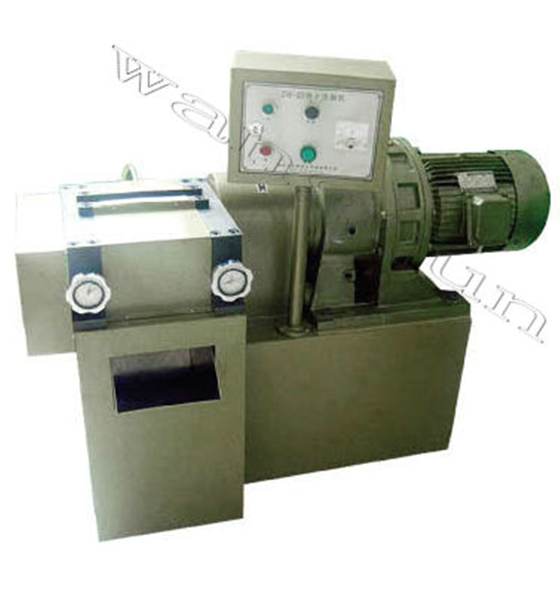Case Studies on High-Capacity Disinfection Tablet Presses
Introduction
Disinfection tablets are widely used in water treatment, healthcare, food processing, and sanitation industries due to their convenience, stability, and effectiveness in killing harmful microorganisms. High-capacity tablet presses play a crucial role in manufacturing these tablets efficiently and at scale. This report explores case studies of high-capacity disinfection tablet presses, highlighting their applications, benefits, and operational efficiencies.
---
Case Study 1: Large-Scale Water Treatment Facility
Background
A major water treatment facility required a high-capacity tablet press to produce chlorine-based disinfection tablets for municipal water purification. The facility previously relied on liquid chlorine, which posed storage and handling challenges.
Challenges
1. Production Volume – The facility needed to produce over 5 million tablets per day to meet demand.
2. Uniformity & Dissolution Rate – Tablets had to dissolve at a controlled rate to ensure consistent chlorine release.
3. Safety Compliance – Handling chlorine-based powders required strict dust control measures.
Solution
A high-speed rotary tablet press with the following features was implemented:
- 60-station rotary press capable of producing 500,000 tablets per hour.
- Dedicated dust extraction system to minimize operator exposure.
- Automated weight control to ensure tablet uniformity (±1% variation).
- Tooling optimized for slow dissolution, ensuring prolonged chlorine release.
Results
- Production efficiency increased by 40%, reducing downtime.
- Tablet dissolution consistency improved, leading to better water treatment outcomes.
- Safety incidents reduced due to automated handling and dust control.
---
Case Study 2: Hospital-Grade Disinfectant Tablet Production
Background
A healthcare product manufacturer needed to produce highly potent disinfectant tablets for hospitals. The tablets contained a blend of chlorine and other antimicrobial agents.
Challenges
1. High Active Ingredient Concentration – The formulation was abrasive, causing excessive wear on tooling.
2. Strict Regulatory Compliance – Tablets had to meet USP and FDA standards for dissolution and potency.
3. Small Batch Flexibility – The manufacturer needed to switch between different tablet sizes frequently.
Solution
A high-precision tablet press with the following capabilities was selected:
- Hardened steel tooling to resist abrasion from chlorine compounds.
- Quick-change tooling system allowing rapid format adjustments.
- Real-time compression force monitoring to maintain tablet hardness and dissolution properties.
Results
- Tooling lifespan increased by 30%, reducing maintenance costs.
- Regulatory compliance achieved with consistent tablet quality.
- Batch changeover time reduced from 2 hours to 30 minutes, improving flexibility.
---
Case Study 3: Industrial Sanitization Tablet Manufacturing
Background
A global supplier of industrial cleaning chemicals needed to expand production of effervescent disinfectant tablets for food processing plants.
Challenges
1. Effervescent Formulation Challenges – The mix of acids and carbonates required precise compression to avoid premature reactions.
2. High Humidity Sensitivity – The raw materials were hygroscopic, leading to sticking and capping issues.
3. High-Volume Demand – The supplier needed to scale up to 10 million tablets per week.
Solution
A dedicated effervescent tablet press was installed with:
- Dehumidified feeding system to prevent moisture absorption.
- Specialized punch designs to minimize sticking and capping.
- Dual-layer compression to ensure proper effervescent reaction upon dissolution.
Results
- Tablet defect rate dropped below 0.5%, improving yield.
- Production capacity doubled, meeting global demand.
- Energy consumption reduced due to optimized press efficiency.
---
Key Benefits of High-Capacity Disinfection Tablet Presses
1. Scalability – Capable of producing millions of tablets per day, meeting large-scale demand.
2. Precision & Consistency – Automated controls ensure uniform tablet weight, hardness, and dissolution.
3. Safety & Compliance – Dust containment and automated handling reduce chemical exposure risks.
4. Cost Efficiency – High-speed production lowers per-unit manufacturing costs.
5. Flexibility – Quick tooling changes allow for multiple tablet formats in a single production line.
---
Conclusion
High-capacity disinfection tablet presses are essential for industries requiring large-scale, high-quality disinfection solutions. The case studies demonstrate their effectiveness in water treatment, healthcare, and industrial sanitation. By leveraging advanced automation, precision tooling, and safety features, manufacturers can achieve higher productivity, regulatory compliance, and cost savings.
Future advancements may include AI-driven predictive maintenance and even faster press speeds, further optimizing disinfection tablet production.
---
This report provides a comprehensive overview of how high-capacity tablet presses enhance disinfection tablet manufacturing across various industries. If you need further details on specific applications, additional case studies can be explored.











 Téléphone
Téléphone
Commentaire
(0)